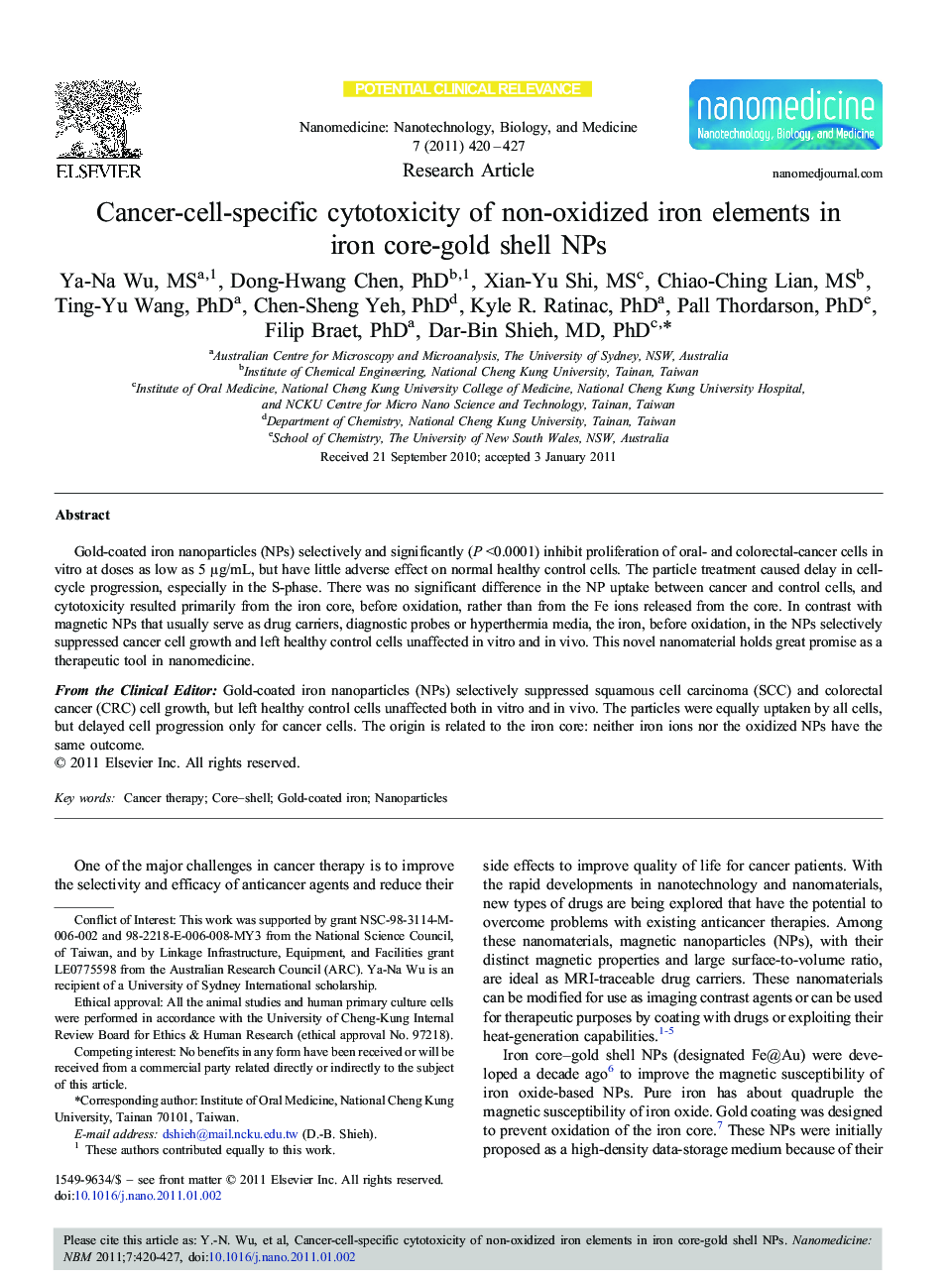| کد مقاله | کد نشریه | سال انتشار | مقاله انگلیسی | نسخه تمام متن |
|---|---|---|---|---|
| 877809 | 911048 | 2011 | 8 صفحه PDF | دانلود رایگان |

Gold-coated iron nanoparticles (NPs) selectively and significantly (P <0.0001) inhibit proliferation of oral- and colorectal-cancer cells in vitro at doses as low as 5 μg/mL, but have little adverse effect on normal healthy control cells. The particle treatment caused delay in cell-cycle progression, especially in the S-phase. There was no significant difference in the NP uptake between cancer and control cells, and cytotoxicity resulted primarily from the iron core, before oxidation, rather than from the Fe ions released from the core. In contrast with magnetic NPs that usually serve as drug carriers, diagnostic probes or hyperthermia media, the iron, before oxidation, in the NPs selectively suppressed cancer cell growth and left healthy control cells unaffected in vitro and in vivo. This novel nanomaterial holds great promise as a therapeutic tool in nanomedicine.From the Clinical EditorGold-coated iron nanoparticles (NPs) selectively suppressed squamous cell carcinoma (SCC) and colorectal cancer (CRC) cell growth, but left healthy control cells unaffected both in vitro and in vivo. The particles were equally uptaken by all cells, but delayed cell progression only for cancer cells. The origin is related to the iron core: neither iron ions nor the oxidized NPs have the same outcome.
Graphical AbstractIn contrast to other magnetic nanoparticles that usually serve as carriers, diagnostic probes or hyperthermia source; gold-coated iron nanoparticles selectively inhibited proliferation of cancer cells in vitro and in vivo at doses as low as 5 μg/mL. Interestingly, these iron core-gold shell nanoparticles did not adversely affect healthy control cells. (Graphical Abstract: Figure 5).Figure optionsDownload high-quality image (150 K)Download as PowerPoint slide
Journal: Nanomedicine: Nanotechnology, Biology and Medicine - Volume 7, Issue 4, August 2011, Pages 420–427